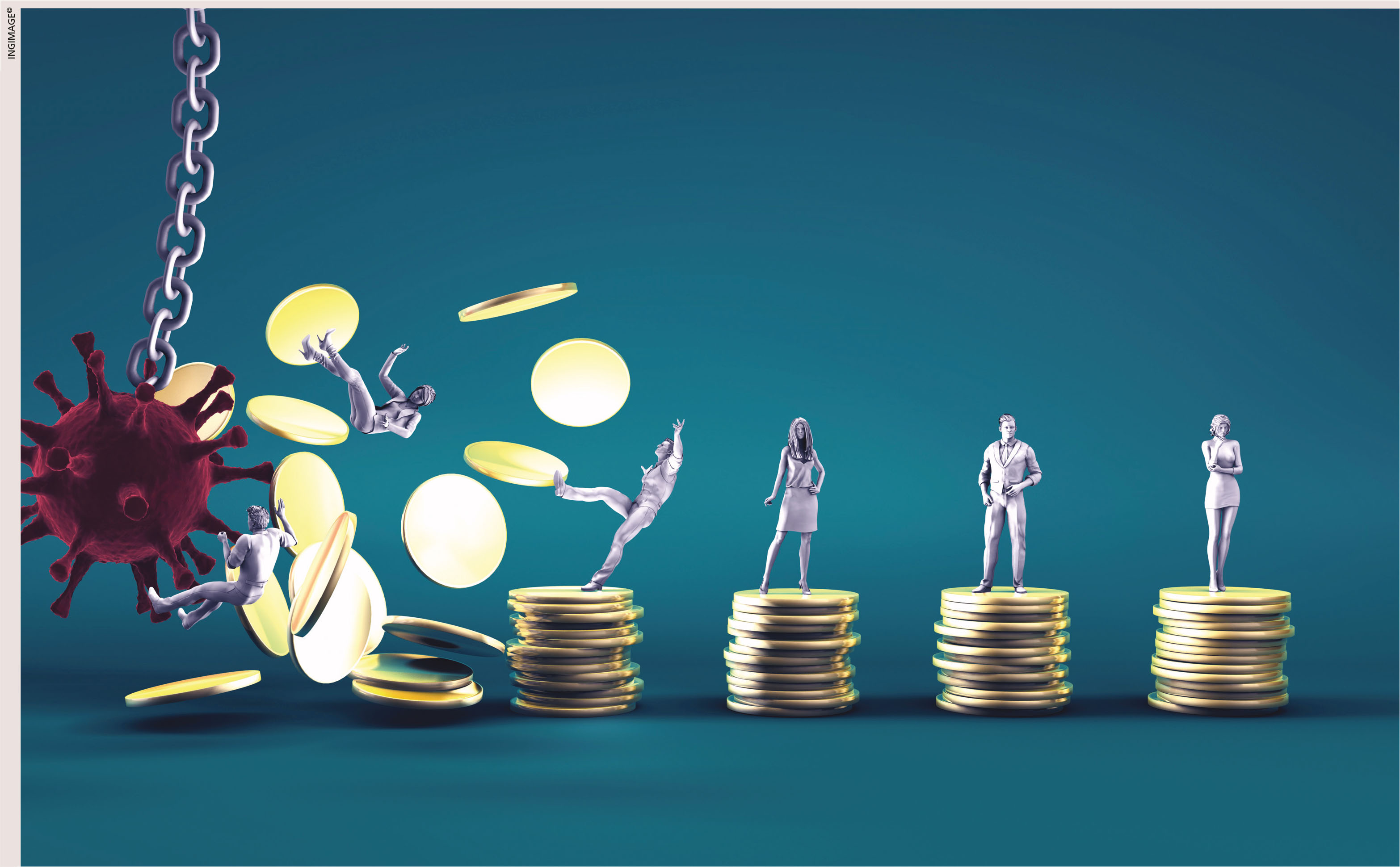CHANGE MANAGEMENT
TRANSFORMING BUSINESS
A sociological approach to post-pandemic business – Sanjeewaka Kulathunga explains
Fear of the dreaded SARS-CoV-2 virus has resulted in a global recession due to a shutdown of the business world. Lockdowns, quarantine and travel restrictions have impacted the lives of hundreds of millions of people around the world, and disrupted international and domestic supply chain networks.
Warnings of depleting sales are consequently being sounded across various industries such as consumer goods, technology and automobiles.
Currently, there are around 15 million COVID-19 cases reported from around the world. Resilience and a duty of care to bring societies and economies back to where they were seem to be the only ways to move forward from this situation.
The impact of the pandemic has been greatly magnified by globalisation. Before the virus hit, there was tremendous economic growth in both developed and emerging markets, due to freedom of movement of capital and labour, and the creation of interdependent economies – which is why the disruption of national economies around the globe has impacted the world so greatly.
According to the Asian Development Bank (ADB), the pandemic has resulted in the global economy suffering losses of around US$ 8.8 trillion, which translates into about 9.7 percent of global GDP.
The impact of economic damage will be more than originally estimated and is expected to prevail for a few years. Using a social intelligence approach, business leaders will need to navigate the financial and operational challenges posed by COVID-19, and swiftly take into account the needs and wants of all their stakeholders – viz. employees, customers, suppliers, investors and so on.
Only those socially insightful leaders who possess the ability to implement tangible actions will be able to turn these massive social and economic complexities into meaningful change in the future. Currently, business leaders are facing unpredictable social and economic challenges in uncharted waters as they continue to navigate the various impacts of this global epidemic. In addition to the economic necessities, businesses are also being compelled to behave as socially responsible entities and prevent another outbreak of coronavirus in society by taking additional protective measures under strict budget constraints.
Business leaders will have to focus on achieving an unpredictable and possibly muted economic recovery with novel opportunities while mitigating threats in the market. In this case, it’s essential to adapt and transform business strategies to meet the fast changing values, norms and behaviour that have emerged in the wake of the pandemic.
It’s in this milieu that companies are faced with urgent and complex problems as they begin to reopen their businesses, and start conducting activities. Even though the threat of COVID-19 isn’t over as yet, the gradual control over its spread in many countries has brought renewed economic hope to the business world. Nevertheless, a radical transformation of out-of-date strategies is required to outmanoeuvre the uncertainties that accompany the reopening and continuation of enterprises.
Accordingly, business investment should be directed mainly to converting operations into being digitally driven and reaching out to stakeholders – particularly customers and suppliers – under variable cost structures.
It’s clearly visible that most people – regardless of national and geographic boundaries – are now becoming more dependent on e-commerce and social media, to fulfil their economic and social needs. Therefore, the creation of a stronger presence in e-commerce and security will be more attractive to consumers.
Fear of the unknown often leads to feelings of panic. For instance, when people around the world feared a shortage of necessities such as groceries, medicines and face masks, their concerns led to panic buying – and in some instances, hoarding.
Now, many months after the onset of the virus, countries are evaluating the significant economic impact of COVID-19 on their financial markets and vulnerable industries, such as manufacturing, travel and tourism.
Several countries still haven’t lifted their domestic and international travel restrictions in consideration of social wellbeing. Travel and tourism account for around 10 percent of global GDP and it appears that about 50 million jobs are at risk of being lost in these sectors across the world.
Corporate leaders should consider establishing long-term strategies for greater resilience under pressure from unexpected phenomena such as pandemics, wars and natural calamities, and apply the lessons learned from this experience.
On a hopeful note… despite the fear of COVID-19, people have displayed extraordinary compassion for those facing economic hardships. Humanity thrives!




